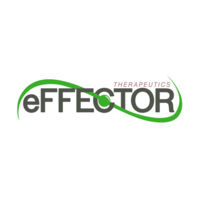预约演示
更新于:2025-05-07
MNK1
更新于:2025-05-07
基本信息
别名 MAP kinase interacting serine/threonine kinase 1、MAP kinase signal-integrating kinase 1、MAP kinase-interacting serine/threonine-protein kinase 1 + [4] |
简介 May play a role in the response to environmental stress and cytokines. Appears to regulate translation by phosphorylating EIF4E, thus increasing the affinity of this protein for the 7-methylguanosine-containing mRNA cap. |
关联
15
项与 MNK1 相关的药物作用机制 MNK1抑制剂 [+1] |
在研机构 |
最高研发阶段临床2期 |
首次获批国家/地区- |
首次获批日期1800-01-20 |
作用机制 MNK1抑制剂 [+1] |
非在研适应症 |
最高研发阶段临床2期 |
首次获批国家/地区- |
首次获批日期1800-01-20 |
作用机制 MNK1抑制剂 [+1] |
最高研发阶段临床前 |
首次获批国家/地区- |
首次获批日期1800-01-20 |
13
项与 MNK1 相关的临床试验NCT05744739
Phase 1 Dose Escalation Study of Tomivosertib in Relapsed or Refractory Acute Myeloid Leukemia (AML)
Phase 1 of the study will open first with a (Bayesian optimal interval BOIN) dose finding design. The starting dose of tomivosertib is 100mgdaily (doses 24 ± 2 hours apart), PO, self-administered with meals. The dose finding follows a BOIN design, with the 100mg BID dose level with a meal being the highest dose. There is one dose level below (dose level -1 = 100mg QD without a meal) that will be given if the de-escalation condition is met during dose finding. Upon completion of the phase 1 dose finding portion of the study, the recommended starting dose of tomivosertib for the subsequent combination with the other agents will be determined, as described in Section 4.3 and Section 8.0.
Tomivosertib will be dosed continuously on days 1-28 of each 28-day cycle at the dose level assigned for that cohort.
Tomivosertib will be dosed continuously on days 1-28 of each 28-day cycle at the dose level assigned for that cohort.
开始日期2023-09-29 |
申办/合作机构 |
NCT05462236
A Phase II Open Label, Dose-finding run-in and Cohort Expansion Study to Evaluate the Safety, Tolerability and Effectiveness of Tinodasertib in Combination With Pembrolizumab or Irinotecan in Metastatic Colorectal Cancer
The study is a 2-part study of Tinodasertib alone or in combination with Pembrolizumab/Irinotecan in patients with CRC.
开始日期2023-04-14 |
申办/合作机构 |
NCT04622007
A Randomized, Double-Blind, Placebo-Controlled Trial of Tomivosertib in Combination With Anti-PD-(L)1 Therapy in Subjects With NSCLC as First Line Therapy or When Progressing on Single-Agent First-Line Anti PD (L)1 Therapy
Tomivosertib combined with pembrolizumab in Subjects with PD-L1 positive NSCLC
开始日期2021-06-02 |
申办/合作机构 |
100 项与 MNK1 相关的临床结果
登录后查看更多信息
100 项与 MNK1 相关的转化医学
登录后查看更多信息
0 项与 MNK1 相关的专利(医药)
登录后查看更多信息
382
项与 MNK1 相关的文献(医药)2025-06-01·Bioorganic Chemistry
Morpholino nicotinamide analogs of ponatinib, dual MNK, p70S6K inhibitors, display efficacy against lung and breast cancers
Article
作者: Chaudhuri, Riddhi ; Aryal, Uma K ; Kaiser, Joshua ; Dayal, Neetu ; Brauer, Nickolas R ; Yeboah, Kofi Simpa ; Mohallem, Rodrigo ; Sintim, Herman O
2024-12-01·Molecular Diversity
Design, synthesis and biological evaluation of MNK-PROTACs
Article
作者: Zhou, Jinpei ; Guan, Dezhong ; Bu, Hong ; Guo, Shi ; Sun, Xue ; Zhang, Huibin ; Wu, Qingyun ; Pei, Yifeng
2024-12-01·Neuropharmacology
Ketamine reverses chronic corticosterone-induced behavioral deficits and hippocampal synaptic dysfunction by regulating eIF4E/BDNF signaling
Article
作者: Gao, Ruyan ; Yang, Canyu ; Li, Axiang ; Li, Shupeng ; Ali, Tahir ; Li, Tao ; Yu, Xiaoming
6
项与 MNK1 相关的新闻(医药)2024-08-15
·药明康德
▎药明康德内容团队编辑
早在古希腊时期,哲学家希波克拉底和柏拉图就在探讨禁食的健康益处。近年来的研究发现,间歇性禁食通过对代谢的重新布局,使得身体的能量供应从葡萄糖转换为酮体,从而带来减轻体重、减少炎症等一系列健康收益。
此外,同样以生成酮体为目的的“网红”饮食方式——生酮饮食,也能取得与间歇性禁食相似的效果。生酮饮食摄入的主要能量不再是碳水化合物,取而代之的是大量脂肪。这样一来,身体就会以脂肪代替葡萄糖作为能量供给,靠肝脏分解脂肪产生酮体,为生命活动提供燃料。
现在,科学家发现禁食与生酮饮食的这种特质,还能为“癌症之王”胰腺癌的治疗带来新的希望!在近期上线的《自然》论文中,加州大学旧金山分校Davide Ruggero教授带领的团队发现,在使用一种临床试验阶段癌症新药的同时通过生酮饮食喂养,可以“饿死”小鼠体内的肿瘤,让胰腺癌停止生长。
虽然禁食对代谢的影响早已有所发现,但一直以来,禁食信号如何在蛋白质组水平上改变基因表达、从而重塑代谢,却缺乏足够的理解。在这项研究中,Ruggero教授团队首先发现,真核细胞翻译起始因子4E(eIF4E)的磷酸化在禁食过程中被诱导。
自从被发现以来,eIF4E磷酸化的生理功能始终是未知数。而最新研究揭示了eIF4E如何改变身体代谢,从而在禁食以及生酮饮食期间转换为消耗脂肪来供能。eIF4E磷酸化控制了参与脂质分解代谢以及酮体生成的基因翻译。在禁食或生酮饮食期间,eIF4E磷酸化会通过特定的翻译调控元件来调控肝脏中的信使RNA。相反,抑制eIF4E磷酸化则会损害禁食和生酮饮食引起的酮体生成。
▲在禁食期间,通过eIF4E磷酸化调控了生酮过程(图片来源:参考资料[1])
有趣的是,研究还发现脂肪酸在这个过程中扮演了意想不到的角色。在禁食或生酮饮食期间,游离的长链脂肪酸含量上升,它们充当了信号分子,激活了营养传感器——AMPK(腺苷酸活化蛋白激酶),AMPK进一步增强了MNK(MAP激酶的相互作用激酶)的磷酸化,而MNK又是eIF4E磷酸化的激酶。
到这里,一条由脂肪酸介导的完整信号通路水落石出——AMPK-MNK-eIF4E轴调控着生酮过程,也将生酮与翻译控制联系了起来。
图片来源:123RF
在找到这条信号通路后,Ruggero教授意识到,这些发现与癌症治疗产生了奇妙的联系。此前Ruggero教授与合作者共同开发出了一款癌症候选药物——tomivosertib(eFT508)。这种药物分子目前仍在临床试验阶段,其作用原理是MNK1与MNK2抑制剂。科学家们试图将eFT508用于胰腺癌治疗,通过阻断eIF4E的生成,来阻止肿瘤生长。然而,由于葡萄糖、碳水化合物可以维持能量供应,因此胰腺癌可以继续生长。
既然如此,通过改变饮食策略、借助使用脂肪供能的生酮饮食,是否可以阻断癌细胞的能量供应、提升eFT508的治疗效果呢?
▲生酮饮食与eFT508联合抑制肿瘤生长的机制(图片来源:参考资料[1])
在最新研究中,Ruggero教授团队开展了小鼠实验。研究团队首先对小鼠采用生酮饮食,迫使胰腺肿瘤仅消耗脂肪,然后使用癌症药物eFT508。在这种情况下,药物切断了癌细胞仅有的营养供应,肿瘤也缩小了。
在此前的临床试验中,eFT508对人体的安全性已经得到证实。现在,最新研究揭示通过eFT508与生酮饮食的联用,能够精确消除胰腺癌。
由此,这项研究揭示了胰腺癌的全新弱点,并且发现eIF4E磷酸化的抑制剂可以靶向这一弱点,为饮食干预和小分子药物的联合疗法提供了理论基础。研究团队也推测,在胰腺癌之外,大多数其他癌症也具有各自的弱点,因此将来有望找到更多包含了饮食策略的癌症精准治疗策略。
参考资料:
[1] Yang et al. Remodelling of the translatome controls diet and its impact on tumorigenesis. Nature (2024). https://doi.org/10.1038/s41586-024-07781-7
[2] A ketogenic diet could improve the response to pancreatic cancer therapy. Retrieved Aug. 14, 2024 from https://www.eurekalert.org/news-releases/1054236
本文来自药明康德内容微信团队,欢迎转发到朋友圈,谢绝转载到其他平台。如有开设白名单需求,请在“学术经纬”公众号主页回复“转载”获取转载须知。其他合作需求,请联系wuxi_media@wuxiapptec.com。
免责声明:药明康德内容团队专注介绍全球生物医药健康研究进展。本文仅作信息交流之目的,文中观点不代表药明康德立场,亦不代表药明康德支持或反对文中观点。本文也不是治疗方案推荐。如需获得治疗方案指导,请前往正规医院就诊。
点个“在看”再走吧~
2024-02-16
·精准药物
共价探针与化学蛋白质组学相结合是研究小分子和蛋白质相互作用的有力方法。然而,在各种配体中创建反应性弹头以形成共价探针的过程通常较为困难,缺乏简便高效的构建共价探针的方法,此外,当前被报道的反应性弹头大多以靶向半胱氨酸残基为主,因此,需要开发新型的亲电试剂并开发一种方便有效的方法将这种潜在的亲电试剂引入配体,特别是可以高效用于后期蛋白质组学分析,并发掘激酶活性口袋内潜在的可共价修饰的氨基酸位点,希望为开发系列新型共价抑制剂提供重要基础。近日,暨南大学药学院李正球研究员、丁克教授、谭毅副研究员等作为共同通讯作者在Nature子刊Communications Chemistry上发表了题为:“Catalyst-free late-stage functionalization to assemble α-acyloxyenamide electrophiles for selectively profiling conserved lysine residues”的文章。作者发展了一个简捷高效的一步偶联反应,该反应可以在无任何催化剂的情况下将生物活性分子中的羧酸基团转变为高活性亲电基团--α-酰氧烯酰胺,可以帮助目标蛋白质的配体选择性标记。通过该方法合成了含有α-酰氧烯酰胺亲电基团的小分子探针、并成功嵌入针对EGFR L858R的激酶抑制剂erlotinib、广谱激酶抑制剂和天然产物当中,其中探针E3可以共价结合EGFR L858R突变体ATP结合口袋附近的赖氨酸残基K728,广谱激酶抑制剂探针可以结合一系列激酶的活性位点如CDK1、CDK2、CDK5的K33等,并且这种方法在天然产物中应用定量蛋白质组学技术同样成功鉴定了一系列重要赖氨酸残基。发现的可修饰保守赖氨酸残基将为构建新型靶向共价抑制剂(TCI)提供重要基础。近年来,靶向共价抑制剂(TCIs)因其显著的药物特性而受到广泛关注。与非共价抑制剂相比,靶向共价抑制剂具有更强的效力、出色的选择性和更长的作用持续时间。然而,这些抑制剂的反应活性通常仅限于α,β-不饱和酰胺,靶点仅为半胱氨酸残基。由于半胱氨酸残基及其突变的高反应性,患者在治疗过程中经常发生获得性耐药。此外,许多蛋白质结合口袋缺乏可靶向的半胱氨酸,因此有必要开发新的亲电试剂,这些亲电试剂可以靶向其他的亲核残基,如保守的赖氨酸和谷氨酸或天冬氨酸,并鉴定可配体的保守残基。共价化学与化学蛋白质组学相结合已成为原位条件下研究小分子-蛋白质相互作用的有力手段,它不仅可以识别结合口袋附近的可结合位点,还可以促进对天然蛋白质功能和小分子生物特性的理解。为了产生共价探针,通常需要将高度活化的亲电试剂如N-羟基琥珀酰亚胺(NHS)、磺基四氟苯基(STP)酯等嵌入药效团,使周围的氨基酸残基在配体结合后被选择性标记。然而,在将亲电弹头结合到各种非共价配体的过程中通常会遇到困难,特别是复杂的天然产物。因此,非常需要开发一种方便有效的方法,用于在后期将潜在亲电试剂引入配体中。为了解决上述问题,作者在前期研究的基础上发展了一步偶联反应,在无任何催化剂的情况下将生物活性分子中的羧酸转变成潜在的亲电弹头-α-酰氧基烯酰胺,并将其引入共价抑制剂和天然产物。作者首先合成一系列小分子共价探针A1-A4,并采用pull-down/MS研究其在活细胞中的共价结合能力,结果表明A1可以共价标记多种癌细胞中的蛋白质,并且标记程度具有良好的浓度依赖性和时间依赖性,随后结合LC-MS/MS和pChem进行进一步分析,表明α-酰氧基烯酰胺弹头主要靶向赖氨酸残基,且A1可以共价结合MDA-MB-231活细胞中的蛋白激酶PFKAP的K688残基,NDKA的K12残基等,这些结果表明α-酰氧基烯酰胺是一种有效的可以共价修饰活细胞的蛋白质赖氨酸残基的亲电弹头。作者进一步评估了该弹头在共价激酶抑制剂中的应用。首先将该弹头引入EFGR L858R的非共价抑制剂erlotinib中合成一系列探针E1-E5,综合探针对EGFR激酶的抑制活性(IC50)的标记能力,E3具有较强的共价结合能力(IC50=8.283 nM),与母体erlotinib抑制活性水平相当,pull-down/WB结果显示E3具有更强的EGFR L858R共价标记能力。随后在erlotinib的竞争下进行靶蛋白鉴定,在erlotinib的存在下,E3对EGFR L858R的结合能力显著降低。进一步的LC-MS/MS实验也表明E3可以共价结合EGFR L858RATP结合口袋附近的K728,证明通过引入α-酰氧基烯酰胺亲电弹头可以将非共价抑制剂erlotinib转变为共价抑制剂并且可结合到新的赖氨酸位点,K728可能是开发新的靶向激酶抑制剂的赖氨酸残基。作者另外在广谱激酶抑制剂的基础上进行了验证,首先在广谱激酶抑制剂的母体化合物中不同部位引入α-酰氧基烯酰胺亲电弹头,形成新的共价探针X1-X4,随后在K562细胞中进行了标记验证,结果表明,探针X1-X4可以成功标记活细胞中的多种蛋白质,在较低浓度下可以观察到在~35kDa、~45kDa处探针有较明显的特异性标记,为了验证该特意标记的蛋白条带,作者进行了pull-down/LC-MS/MS实验进行鉴定,结果分析这两条特异性标记条带分别为激酶CDK1和MEK2,此外四个探针在10 µM浓度下共检测到了91个蛋白激酶,显示了探针对激酶的高标记能力,进一步采用pull-down/WB实验验证了探针对两种激酶共价标记,并且在洗涤一段时间后X1对激酶CDK1的标记能力仍旧没有减弱。作者进一步分析了探针用于分析全蛋白质组中激酶的保守赖氨酸残基的能力,结果表明四个探针共结合了不同激酶的64个赖氨酸残基,其中CDK1、CDK2、CDK5的K33、PAK2的K278、MKNK1的K78、MP2K2、MP2K1的K97、K101、NDKB的K12、AAPK1、AAPK2的K45和K56以及CSK21、CSK22、CSK23的K68(K69是ATP结合位点)。KPYM的K270是底物结合位点,发现一小部分已鉴定的位点(例如PGK1的K216或CDK1的K20)位于ATP结合口袋中,表明这些可能是共价修饰的位点并影响激酶功能。CDK1、CDK2、CDK5的K33、MEK2的K101、CHK2的K249、STK38的K118、MKNK1的K78突变为精氨酸后导致探针与相应激酶的标记谱降低,表明修饰主要发生在催化残基处。这些实验结果表明基于α-酰氧基酰胺的探针适用于分析整个蛋白质组中激酶的可结合保守赖氨酸残基。最后作者评估了α-酰氧基酰胺亲电弹头在天然产物中的应用。首先利用无催化的一步偶联反应和天然产物配体合成一系列的探针,随后进行了抗增值活性评估,结果显示含α-酰氧基酰胺的探针比含NHS的探针发挥出了更高的效力,也表明α-酰氧基酰胺的存在可以增强探针的抗癌效果。作者采用定量蛋白质组学进行了进一步的分析,结果表明,基于α-酰氧基酰胺的探针(Ar-2/3、BA-3、MA-2/3、UrA-2/3)比基于NHS的探针(Ar-1、BA-1、MA-1、UrA-1)产生更高的同位素比率,显示出对这些保守赖氨酸残基的优异标记能力。从这些探针中检测到不同的配体赖氨酸残基亚组,MA-3的修饰数量最高。用NHS-biotion的竞争性标记谱图显示Ar-2、MA-2、UrA-2、UrA-3剂量依赖性地阻断标记,证明这些探针确实与鸟氨酸转氨酶蛋白结合。MDA-MB-231活细胞中MA-1/3的结合位点图谱显示,两种探针均可成功识别已知靶标IMPDH2,标记位点K438是结合口袋中的相邻残基。这些结果再次证明,α-酰氧基酰胺亲电试剂可以应用于各种生物活性分子中,以分析已知或未知的靶标和相应的可配基保守赖氨酸残基,从而促进新的靶向共价抑制剂的开发。总之,本研究引入了一个简捷高效的一步偶联反应,在合成的后期将生物活性分子中的羧酸基团转化为高活性的亲电试剂α-酰氧基酰胺。这一过程与药效团中的各种功能基团兼容,从而具有广泛的应用。所得亲电试剂对蛋白质中的赖氨酸残基表现出显著的反应性。通过将这种强效亲电试剂整合到特异性激酶抑制剂厄洛替尼和广谱激酶抑制剂中,成功开发出能够共价结合目标蛋白的探针,鉴定了一系列不同激酶的可修饰保守的赖氨酸残基,为开发新的靶向共价抑制剂提供了有价值的线索。此外,这种方法的效用扩展到了天然产物中,它能够对未知靶标进行靶标分析和结合模式表征,并且可以作为NHS弹头的补充。研究含α-酰氧基酰胺探针与各种蛋白质靶标相互作用的能力为了解它们的生物活性开辟了新的途径。这些发现证明了生物活性分子中α-酰氧基酰胺亲电试剂在研究靶标结合和分析保守赖氨酸残基方面的多功能性和实用性。声明:发表/转载本文仅仅是出于传播信息的需要,并不意味着代表本公众号观点或证实其内容的真实性。据此内容作出的任何判断,后果自负。若有侵权,告知必删!长按关注本公众号 粉丝群/投稿/授权/广告等请联系公众号助手 觉得本文好看,请点这里↓
蛋白降解靶向嵌合体
2022-11-15
SINGAPORE and BETHESDA, Md., Nov. 15, 2022 (GLOBE NEWSWIRE) -- AUM Biosciences Pte. Ltd. (“AUM”), a clinical-stage biotechnology company, advancing a clinical stage candidate and a broader pipeline designed to deploy multi-faceted inhibition strategies to reverse cancer resistance, today announced it has received Human Research Ethics Committee (“HREC”) approval to commence a Phase II clinical trial of its selective translation inhibitor AUM001 in Australia. Ethics approval is confirmation that AUM has completed all the necessary pre-clinical safety and efficacy testing of AUM001 required to commence its Phase II clinical trial in Australia.
“Ethics approval in Australia provides further validation of the study design recently approved under an IND by the U.S. FDA,” said Vishal Doshi, CEO of AUM. “We are proud of our ability to continue to make progress in the development of AUM001, having obtained authorization for our U.S. IND in May. We are very much looking forward to commencing dosing in Part 1 of the Phase II trial before the end of 2022,” added Doshi.
This trial is a Phase II open label, dose-finding run-in and cohort expansion study to evaluate the safety, tolerability and effectiveness of AUM001 in combination with pembrolizumab or irinotecan for the treatment of metastatic colorectal cancer. It will be conducted in two parts: (1) dose escalation run-in to identify the Maximum Tolerable Dose and the Recommended Phase II Dose (“RP2D”) of AUM001 to be administered orally as monotherapy and in combination with pembrolizumab or irinotecan, and (2) a cohort expansion at the RP2D of AUM001 in combination with pembrolizumab or irinotecan in patients with locally advanced or metastatic colorectal cancer to evaluate the clinical activity and safety of AUM001.
Part 1 of the global Phase II trial will be conducted under Australia’s Clinical Trials Notification Scheme meaning AUM will notify the Therapeutic Goods Administration of HREC approval and complete local site initiation activities. AUM plans to open six clinical sites for Part 1 in Australia.
In May 2022, AUM received authorization from the U.S. Food and Drug Administration (“FDA”) of its Investigational New Drug (“IND”) application for the clinical trial evaluating AUM001 to treat metastatic colorectal cancer. Study details can also be found on under study ID: NCT05462236. The global Phase 2 trial is being conducted in collaboration with MSD, a tradename of Merck & Co., Inc., pursuant to a clinical trial collaboration and supply agreement.
About AUM001
AUM001 is a highly selective translation inhibitor. In vitro, it was observed to selectively inhibit mitogen-activated protein kinase (MAPK) – interacting protein kinase (MNK) types 1/2 and is expected to thereby block phosphorylation of eIF4E, and in turn, interfere with CAP mediated RNA translation, thereby impairing growth signals involved in cancer development, progression, and resistance to therapies. MNK is important in tumor microenvironment regulation, shifting the balance towards tumor inhibition. Moreover, inhibition of MNK kinases decreases the production of the pro-inflammatory cytokines like TNFα and IL-6, suggesting that MNK kinases and their substrates (eIF4E, hnRNP A1, Spry1/2) play a pivotal role in regulating the innate and adaptive immune compartment. This has the potential to turn “cold” tumors “hot”, increasing the proportion of tumors susceptible to immunotherapies. AUM001 demonstrated encouraging safety, tolerability, and target engagement as a monotherapy in two phase 1 clinical trials.
On October 20, 2022, AUM and Mountain Crest Acquisition Corp. V (Nasdaq: MCAG) (“Mountain Crest”), a publicly traded special purpose acquisition company formed in Delaware, whose management team has an impressive pedigree of successful SPAC transactions, announced that they have entered into a definitive business combination agreement (the “Agreement”). Upon closing of the transaction, the combined company will operate under a holding entity, AUM Biosciences Limited, a Cayman Islands exempted company (“Holdco”), and intends to trade on the Nasdaq Stock Market under the ticker symbol AUMB.
About AUM Biosciences
AUM is a global clinical-stage oncology company focused on advancing a pipeline of precision oncology therapeutics designed to deploy multi-faceted inhibition strategies to reverse cancer resistance. AUM is advancing a broad portfolio of precision oncology therapeutics. AUM001 is a selective and synergistic MNK inhibitor as shown in current studies and expected to begin Phase 2 enrollment in the fourth quarter 2022. AUM601 is a promising therapy for Tropomyosin Receptor Kinase (TRK) fusions and mutations within the kinase domain and is on track to enter Phase 2 planning. AUM302 is a potentially first-in-class macrocyclic oral kinase inhibitor rationally designed small molecule to uniquely combine pan-PIM kinase, pan-PI3K and mTOR inhibition in a single agent. Comprised of pharma industry veterans with decades of research and development experience, the AUM leadership has an extensive track record of selecting distinctive early-stage assets, successfully exiting virtual biotech models, and has contributed to over 50 INDs and over 150 oncology clinical trials, and development of several currently marketed oncology treatments with annual peak sales up to $3 billion.
About Mountain Crest
Mountain Crest Acquisition Corp. V (Nasdaq: MCAG) is a blank check company formed for the purpose of effecting a merger, share exchange, asset acquisition, share purchase, reorganization or similar business combination with one or more businesses.
Non-Solicitation
This press release shall not constitute a solicitation of a proxy, consent, or authorization with respect to any securities or in respect of the proposed business combination. This press release shall also not constitute an offer to sell or the solicitation of an offer to buy any securities, nor shall there be any sale of securities in any states or jurisdictions in which such offer, solicitation, or sale would be unlawful prior to registration or qualification under the securities laws of any such jurisdiction. No offering of securities shall be made except by means of a prospectus meeting the requirements of Section 10 of the Securities Act of 1933, as amended, or an exemption therefrom.
Important Information About the Proposed Business Combination and Where to Find It
In connection with the proposed business combination, AUM, Mountain Crest and/or a successor entity of the transaction intends to materials with the SEC, including a registration statement on Form F-4 containing a proxy statement/prospectus (the “Registration Statement”). The Registration Statement will include a proxy statement/prospectus to be distributed to holders of Mountain Crest’s common stock in connection with Mountain Crest’s solicitation of proxies for the vote by Mountain Crest’s stockholders with respect to the proposed transaction and other matters as described in the Registration Statement, as well as the prospectus relating to the offer of securities to be issued to AUM’s stockholders in connection with the proposed business combination. After the Registration Statement has been filed and declared effective, Mountain Crest will mail a definitive proxy statement, when available, to its stockholders. Copies of these documents may be obtained free of charge at the SEC's website at Stockholders of Mountain Crest are urged to read the Registration Statement and the other relevant materials when they become available before making any voting decision with respect to the proposed business combination because they will contain important information. The information contained on, or that may be accessed through, the website referenced in this press release is not incorporated by reference into, and is not a part of, this press release.
Participants in the Solicitation
Mountain Crest and its directors and executive officers may be deemed participants in the solicitation of proxies from Mountain Crest’s stockholders with respect to the business combination. A list of the names of those directors and executive officers and a description of their interests in Mountain Crest will be included in the Registration Statement for the proposed business combination and be available at Additional information regarding the interests of such participants will be contained in the Registration Statement for the proposed business combination when available. Information about Mountain Crest’s directors and executive officers and their ownership of Mountain Crest common stock is set forth in Mountain Crest’s Annual Report on Form 10-K for the fiscal year ended December 31, 2021, as modified or supplemented by any Form 3 or Form 4 filed with the SEC since the date of such filing. Other information regarding the interests of the participants in the proxy solicitation will be included in the Registration Statement pertaining to the proposed business combination when it becomes available. These documents can be obtained free of charge from the sources indicated above.
AUM and its directors and executive officers may also be deemed to be participants in the solicitation of proxies from the stockholders of Mountain Crest in connection with the proposed business combination. A list of the names of such directors and executive officers and information regarding their interests in the proposed business combination will be included in the Registration Statement for the proposed business combination.
Forward-Looking Statements
This press release includes “forward-looking statements” within the meaning of the “safe harbor” provisions of the United States Private Securities Litigation Reform Act of 1995. Mountain Crest’s and AUM’s actual results may differ from their expectations, estimates, and projections and, consequently, you should not rely on these forward-looking statements as predictions of future events. Words such as “expect,” “estimate,” “project,” “budget,” “forecast,” “anticipate,” “intend,” “plan,” “may,” “will,” “could,” “should,” “believes,” “predicts,” “potential,” “continue,” and similar expressions (or the negative versions of such words or expressions) are intended to identify such forward-looking statements. These forward-looking statements include, without limitation, Mountain Crest’s and AUM’s expectations with respect to future performance and anticipated financial impacts of the proposed business combination, the satisfaction of the closing conditions to the proposed business combination, and the timing of the completion of the proposed business combination.
These forward-looking statements involve significant risks and uncertainties that could cause the actual results to differ materially from those discussed in the forward-looking statements. Most of these factors are outside Mountain Crest’s and AUM’s control and are difficult to predict. Factors that may cause such differences include, but are not limited to: (1) the occurrence of any event, change, or other circumstances that could give rise to the termination of the Agreement; (2) the outcome of any legal proceedings that may be instituted against Mountain Crest and AUM following the announcement of the Agreement and the transactions contemplated therein; (3) the inability to complete the proposed business combination, including due to failure to obtain approval of the stockholders of Mountain Crest and AUM, certain regulatory approvals, or satisfy other conditions to closing in the Agreement; (4) the occurrence of any event, change, or other circumstance that could give rise to the termination of the Agreement or could otherwise cause the transaction to fail to close; (5) the impact of the COVID-19 pandemic on AUM’s business and/or the ability of the parties to complete the proposed business combination; (6) the inability to obtain the listing of Holdco’s ordinary shares on Nasdaq following the proposed business combination; (7) the risk that the proposed business combination disrupts current plans and operations as a result of the announcement and consummation of the proposed business combination; (8) the ability to recognize the anticipated benefits of the proposed business combination, which may be affected by, among other things, competition, the ability of AUM to grow and manage growth profitably, and retain its key employees; (9) costs related to the proposed business combination; (10) changes in applicable laws or regulations; (11) the possibility that Mountain Crest or AUM may be adversely affected by other economic, business, and/or competitive factors; (12) risks relating to the uncertainty of the projected financial information with respect to AUM; (13) risks related to the organic and inorganic growth of AUM’s business and the timing of expected business milestones; (14) the amount of redemption requests made by Mountain Crest’s stockholders; and (15) other risks and uncertainties indicated from time to time in the final prospectus of Mountain Crest for its initial public offering and the Registration Statement relating to the proposed business combination, including those under “Risk Factors” therein, and in Mountain Crest’s other filings with the SEC. Mountain Crest cautions that the foregoing list of factors is not exclusive. Mountain Crest and AUM caution readers not to place undue reliance upon any forward-looking statements, which speak only as of the date made. Mountain Crest and AUM do not undertake or accept any obligation or undertaking to release publicly any updates or revisions to any forward-looking statements to reflect any change in their expectations or any change in events, conditions, or circumstances on which any such statement is based.
Investors:
ICR Westwicke
Stephanie Carrington
T: (646) 277-1282
stephanie.carrington@westwicke.com
Media:
FINN Partners
Glenn Silver
T: (973) 818-8198
glenn.silver@finnpartners.com
SPAG/FINN
Verlynn Heng
+65-91861225
verlynn.heng@spag.asia
临床2期临床1期免疫疗法临床申请
分析
对领域进行一次全面的分析。
登录
或

生物医药百科问答
全新生物医药AI Agent 覆盖科研全链路,让突破性发现快人一步
立即开始免费试用!
智慧芽新药情报库是智慧芽专为生命科学人士构建的基于AI的创新药情报平台,助您全方位提升您的研发与决策效率。
立即开始数据试用!
智慧芽新药库数据也通过智慧芽数据服务平台,以API或者数据包形式对外开放,助您更加充分利用智慧芽新药情报信息。
生物序列数据库
生物药研发创新
免费使用
化学结构数据库
小分子化药研发创新
免费使用






